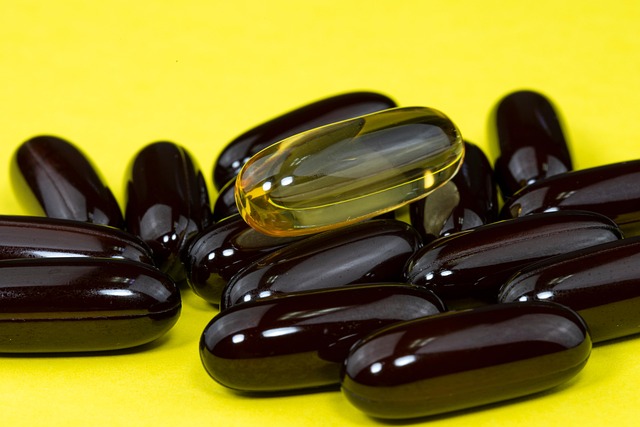Inflammation is a natural and vital part of the body’s immune response, helping to heal injuries and fight infections. However, when inflammation becomes chronic or excessive, it can contribute to a host of health issues, including heart disease, arthritis, diabetes, autoimmune disorders, and even certain cancers. One promising approach to managing inflammation involves the use of essential fatty acids (EFAs) —specifically omega-3 and omega-6 fatty acids. These vital nutrients play a key role in regulating inflammatory pathways and supporting overall health.
What Are Essential Fatty Acids?
Essential fatty acids are polyunsaturated fats that the body cannot produce on its own and must be obtained through diet. The two primary types of EFAs are:
- Omega-3 Fatty Acids:
- Found in foods like fatty fish (salmon, mackerel, sardines), flaxseeds, chia seeds, walnuts, and algae.
- Key components include eicosapentaenoic acid (EPA), docosahexaenoic acid (DHA), and alpha-linolenic acid (ALA).
- Omega-6 Fatty Acids:
- Commonly found in vegetable oils (corn, soybean, sunflower), nuts, seeds, and processed foods.
- The most important omega-6 fatty acid is linoleic acid (LA), which the body converts into arachidonic acid (AA).
While both omega-3 and omega-6 fatty acids are essential, their balance is critical for optimal health. Omega-3s tend to have anti-inflammatory effects, while some omega-6 derivatives can promote inflammation if consumed in excess.
How Do EFAs Influence Inflammation?
EFAs influence inflammation through their role in producing signaling molecules called eicosanoids . These compounds regulate immune responses, blood clotting, and inflammation. The type of eicosanoid produced depends on the balance of omega-3 and omega-6 fatty acids in the body:
- Omega-3-Derived Eicosanoids:
- Promote anti-inflammatory responses by reducing the production of pro-inflammatory cytokines.
- EPA and DHA are converted into resolvins and protectins, which actively resolve inflammation and promote tissue healing.
- Omega-6-Derived Eicosanoids:
- Can trigger pro-inflammatory pathways, especially when present in high amounts relative to omega-3s.
- Arachidonic acid, derived from omega-6s, produces inflammatory mediators like prostaglandins and leukotrienes.
The modern Western diet often contains an imbalance, with an overabundance of omega-6 fatty acids (from processed oils and fried foods) and insufficient omega-3s. This skewed ratio contributes to chronic inflammation and associated diseases.
Benefits of Omega-3 Fatty Acids in Managing Inflammation
Research has demonstrated numerous benefits of omega-3 fatty acids in reducing inflammation and improving health outcomes:
- Reducing Systemic Inflammation:
- Omega-3s lower levels of inflammatory markers such as C-reactive protein (CRP), interleukin-6 (IL-6), and tumor necrosis factor-alpha (TNF-α).
- Studies show that regular consumption of omega-3-rich foods or supplements can alleviate symptoms of inflammatory conditions like rheumatoid arthritis, Crohn’s disease, and asthma.
- Supporting Cardiovascular Health:
- Omega-3s reduce triglyceride levels, lower blood pressure, and prevent plaque buildup in arteries—all of which are linked to inflammation.
- They also stabilize heart rhythms and decrease the risk of arrhythmias.
- Improving Joint Health:
- Omega-3 supplementation has been shown to reduce joint pain, stiffness, and swelling in individuals with osteoarthritis and rheumatoid arthritis.
- It may allow patients to reduce reliance on nonsteroidal anti-inflammatory drugs (NSAIDs), which can have side effects.
- Enhancing Brain Function:
- Chronic inflammation is implicated in neurodegenerative diseases like Alzheimer’s and Parkinson’s. Omega-3s protect brain cells by reducing oxidative stress and promoting neurogenesis.
- DHA, in particular, supports cognitive function and mental well-being.
- Boosting Immune Regulation:
- Omega-3s help modulate the immune system, preventing overactive responses seen in autoimmune disorders.
Addressing the Omega-6 to Omega-3 Ratio
To harness the anti-inflammatory benefits of EFAs, it’s crucial to address the dietary imbalance between omega-6 and omega-3 fatty acids. Historically, humans consumed these fats in a ratio of approximately 1:1. Today, the typical Western diet has a ratio closer to 15:1 or higher, favoring omega-6s. Here’s how to restore balance:
- Increase Omega-3 Intake:
- Eat fatty fish at least twice a week or consider high-quality fish oil supplements.
- Incorporate plant-based sources of omega-3s, such as flaxseeds, chia seeds, hemp seeds, and walnuts.
- Reduce Omega-6 Consumption:
- Limit processed foods, fried foods, and snacks made with refined vegetable oils.
- Opt for healthier cooking oils like olive oil, avocado oil, or coconut oil instead of corn, soybean, or sunflower oil.
- Focus on Whole Foods:
- Emphasize whole, unprocessed foods rich in omega-3s and low in omega-6s, such as leafy greens, legumes, and pasture-raised eggs.
Practical Recommendations for Using EFAs
- Dietary Sources:
- Prioritize nutrient-dense foods over supplements whenever possible. For example, wild-caught salmon provides not only omega-3s but also vitamins D and B12.
- Vegans and vegetarians can rely on algae-based omega-3 supplements as a sustainable alternative to fish oil.
- Supplementation Guidelines:
- Choose high-quality fish oil or algae oil supplements that are third-party tested for purity and potency.
- Look for products containing at least 500–1,000 mg of combined EPA and DHA per serving.
- Monitor Dosage:
- General recommendations suggest 250–500 mg of EPA and DHA daily for general health. Higher doses (up to 3,000 mg/day under medical supervision) may be beneficial for specific conditions like cardiovascular disease or rheumatoid arthritis.
- Combine with Anti-Inflammatory Lifestyle Choices:
- Pair EFA intake with other anti-inflammatory practices, such as regular exercise, adequate sleep, stress management, and a Mediterranean-style diet rich in fruits, vegetables, whole grains, and healthy fats.
Potential Risks and Considerations
While EFAs are generally safe, there are a few considerations to keep in mind:
- Blood Thinning Effects:
- High doses of omega-3s may increase the risk of bleeding, especially in individuals taking blood thinners like warfarin or aspirin. Consult your doctor before starting supplementation.
- Quality of Supplements:
- Low-quality fish oil supplements may contain contaminants like mercury or PCBs. Always choose reputable brands.
- Allergies and Sensitivities:
- Some people may experience gastrointestinal discomfort or allergic reactions to fish-derived supplements. Algae-based options are a suitable alternative.
- Balanced Approach:
- Avoid completely eliminating omega-6s, as they are still essential for skin health, hormone production, and other bodily functions. Focus on achieving a balanced ratio rather than extreme restriction.









